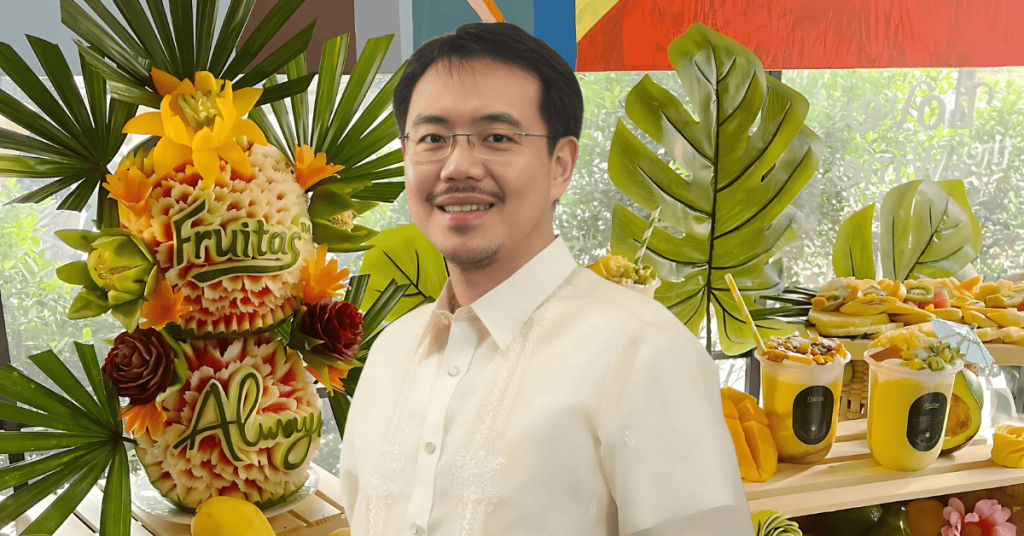When Lester Yu looks back on his entrepreneurial journey, one of the most important lessons didn’t come from success—it came from failure. Before founding Fruitas, the country’s leading fruit shake brand, Yu rode the wave of the pearl shake craze in the late 1990s. It was a roller coaster that taught him the dangers of fads, the value of sustainability, and the importance of resilience.
“We grew from zero to 75 stores in three years, but the downfall was even faster,” Yu recalled. “Almost a straight line down.”
The Pearl Shake Craze
Yu entered the business scene at a time when Zagu and Orbitz were creating a frenzy for pearl shakes. His own brand, Lush Coolers, grew rapidly as customers lined up for the novelty drinks. Expansion was easy; barriers to entry were low.
“It was so easy,” he said. “During that time, pearl shakes had such a high trajectory, but the fall was even faster.”
By the early 2000s, the market had collapsed. Stores that once thrived shut down, and what seemed like a golden opportunity evaporated almost overnight. For Yu, it was a painful but necessary education in business cycles.
A Hard Lesson in Sustainability
The collapse forced Yu to rethink what kind of entrepreneur he wanted to be. He experimented with other ventures—from supplying supermarkets to dabbling in gold trading—but none gave him the sense of long-term stability he was looking for.
“I said I do not like to enter a volatile, not sustainable business anymore,” he explained. “Gold trading has no branding. Importing things from China has no branding. I want something with branding.”
It was this clarity that set him on the path to creating Fruitas, a brand that would not only survive but thrive in the competitive food and beverage industry.
Slow and Steady with Fruitas
Yu launched Fruitas with a small two-square-meter stall in SM Manila. Unlike his first venture, Fruitas didn’t take off immediately. “In the beginning, it was not so profitable, it was not lucrative,” he admitted. But this time, Yu was determined to stay the course.
Instead of chasing quick wins, he focused on reinvesting earnings back into the company. “We had to scrimp so that the business can be sustained,” he shared. “What we make, we put back in the company.”
The strategy required sacrifice. Yu and his team lived modestly, but it kept the business alive long enough to ride a new wave of consumer behavior: the rise of health consciousness.
Riding the Health Trend
By the mid-2000s, Filipinos were joining fun runs, signing up for marathons, and looking for healthier alternatives to soft drinks. Fruitas was perfectly positioned to meet this demand.
“Our breakthrough came when the Philippine environment became more health conscious—fun runs, marathons, lifestyle changes,” Yu recalled
Suddenly, what once felt like a slow grind turned into steady, sustainable growth. Fruitas wasn’t just another fad—it had tapped into a long-term shift in consumer preferences.
The Power of Staying the Course
Yu’s story highlights one of the most overlooked truths in business: success is not always about riding the hottest trend. Sometimes, it’s about patience, discipline, and finding an idea that aligns with deeper shifts in society.
“I thought this should be a sustainable business,” he said, comparing Fruitas to older brands that had already proven their staying power.
Today, Fruitas has grown far beyond a single stall. With over 1,000 outlets and more than 20 brands under its belt, the company is proof that the lessons Yu learned from his early failures continue to shape his strategy.
Key Takeaway for Entrepreneurs
For aspiring founders, Yu’s journey is a reminder not to mistake rapid growth for lasting success. Markets can change quickly, and fads can fade overnight. What matters more is creating a brand that consumers can trust and return to over the long term.
As Yu himself put it, “I want to enter a business that has branding.”
That decision transformed him from a casualty of a passing craze into the visionary leader of a thriving food empire.
![]()



